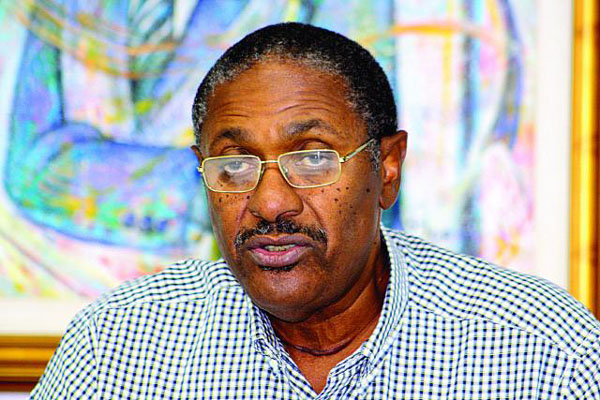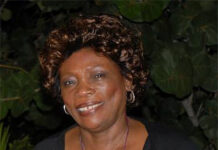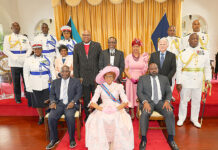
COMMENTARY BY BRADLEY B. ROBERTS
FORMER CABINET MINISTER AND MP
6 MAY 2018
In my commentary last week I raised the concern of gentrification, or mass dislocation of the “rental” poor, as a serious social fallout from the Minnis proposed over-the-hill economic revitalization plan contained in a white paper announced by the Prime Minister in Parliament recently. At a town hall meeting last week on this plan, Director of Economic Development and Planning in the Office of the Prime Minister Dr. Nicola Virgill-Rolle admitted that the government is aware of the risk of gentrification of its Over-the-Hill economic plan.
”That was one of the key issues which we brought up initially when we released our work back in December…” said Dr. Virgill Rolle as reported in the Nassau Guardian, but added that “we learn from the mistakes of others and the well-intentioned mistakes of others as well and what’s happened. She also promised to be “thinking about gentrification very heavily” as her team finalize their report.
Among the measures the government is considering according to Dr. Virgill-Rolle is a healthy stock of “affordable housing, decent, good, quality, affordable housing.”
I however caution the government again a cookie cutter or “one size fits all” approach to this initiative as the multiple over-the-hill communities are heterogenous in their demographic composition and social and economic needs. A good rule of thumb would be for the government to tailor a program that is a good fit for a particular area but street by street and door to door analysis are necessary to achieve this.
The government will do well to incorporate the thirty or so programs that make up the Urban Renewal 2.0 project into this initiative. Additionally, Dr. Virgil-Rolle and her team have conducted extensive research and analysis as part of the Inter-American Bank funded NATIONAL DEVELOPMENT PLAN – VISION 2040 in partnership with the scholars at the University of The Bahamas in addressing the issues of poverty, wealth creation and expanded economic access to all Bahamians. The model created by the NDP Project team will prove very useful as the government moves ahead with this initiative.
I dare say much, if not all, of the ground or preparatory work has been done and the government can now move into the implementation stage. I believe the NDP Project team called it the diagnostic phase. Much of the information shared by the government representative strongly suggest that the UR2.0 model and the model designed during the diagnostic phase of the NDP Project were gleaned, extracted and formed the base of the white paper proposed for over-the-hill. This is a good thing as governments are continuous with successive administration building on the success of its predecessors.
This initiative is a long process that could easily take a generation to come to full fruition but tenacity, stickability and focused leadership are the keys to its success. It is unfortunate however that the IDB funded R.I.S.E. program has been discontinued because of program’s focus on health, jobs training and general lifestyle changes. I strongly advise the government re-introduce the R.I.S.E. program.
Pertinent questions
I reiterate the salient points and concerns raised by the Leader of the Opposition, the Hon. Philip Brave Davis, when he addressed supporters at a public meeting last week
“Since the tax concessions will result in obvious loss of revenue to the treasury, the government must explain how it intends to recoup or compensate for the revenue shortfall.
“Since web shops and liquor stores are within the physical perimeter of over-the-hill, to exclude these businesses is inherently discriminatory and might be illegal, therefore subjecting the government to a redundant legal challenge. Why not have these businesses contribute to the community in some meaningful way as an alternative?
“The government must say if this policy as envisioned by them will result in gentrification because the over-the-hill area sizable residential pockets occupied largely by the indigent on a rental basis. I point out that since there are high levels of unemployment and many homes off the electrical grid and without electricity, free wifi can only benefit those affected individuals if and when these more fundamental problems are addressed and solved. This project is different from the revitalization of downtown Nassau that is a purely commercial district. The few residential pockets are already upscale and high end” said Mr. Davis.
I repeat a few pertinent questions for the government as the government representative could only recognize but not answer the questions regarding the fate of the plight of the poor in these over-the-hill communities:
Has the government expressed how they will deal with the renting poor who will have to move out of these renewed areas?
Where will they go?
How will they afford housing?
Who will pay for them?
“At the very least, this policy should answer these basic human rights questions” said Mr. Davis. I agree with him.
Dr Virgil-Rolle revealed that her team will be “working over the next two months, over May and June, in order to finalize the work and also finalize the legislation, which we would like to have all the concepts and any tweaks put into the Empowerment Bill legislation, so that can go with the budget legislation, to come into effect in July.”
We therefore await the tabling of the final legislative proposal.




![A Con Artist [RACIST] wants Bahamians to fight progress – WELL, WHAT IS THIS?!](https://www.bahamaspress.com/wp-content/uploads/2025/07/Toby-Smith-218x150.jpg)


